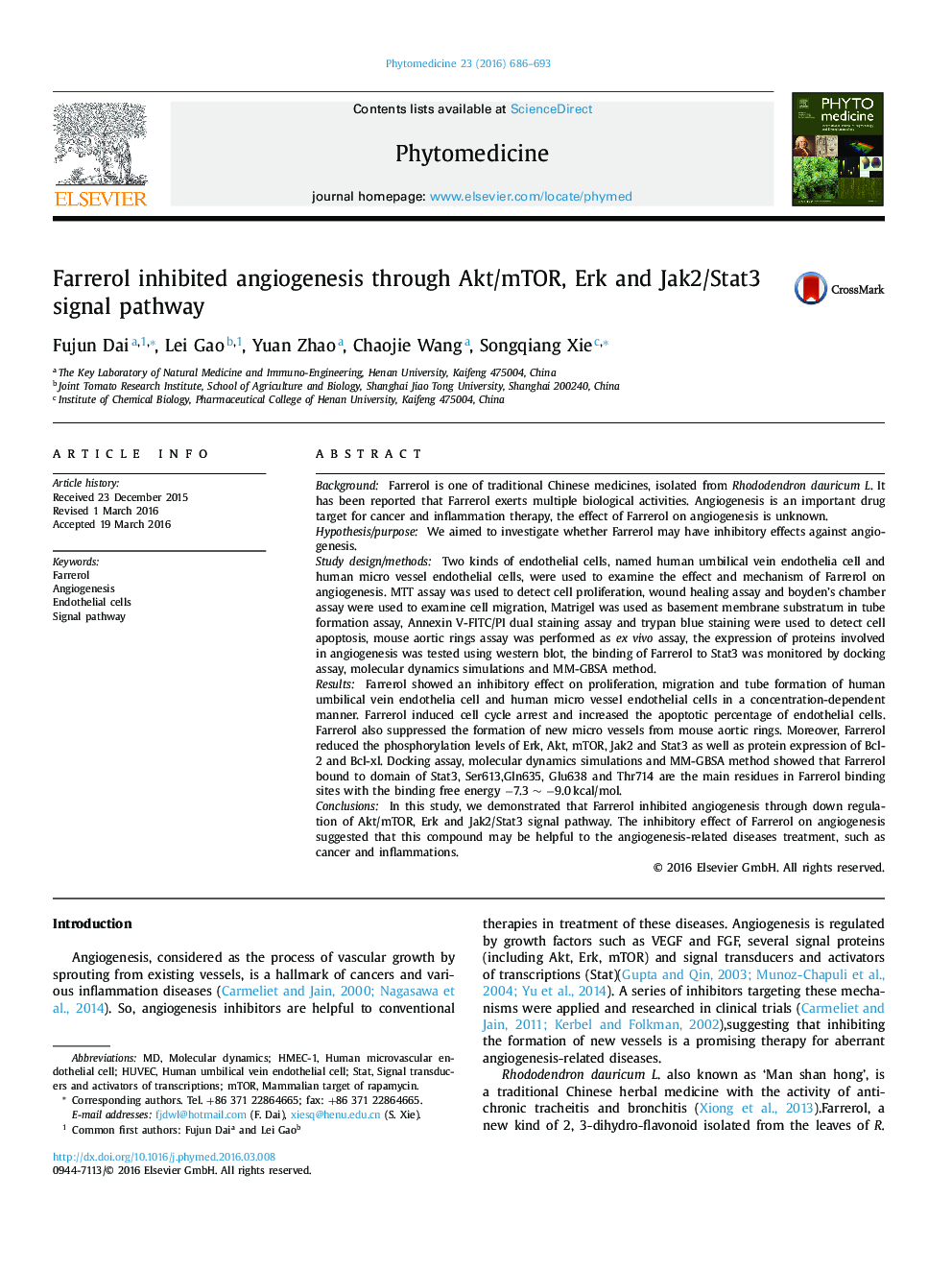| Article ID | Journal | Published Year | Pages | File Type |
|---|---|---|---|---|
| 2496306 | Phytomedicine | 2016 | 8 Pages |
BackgroundFarrerol is one of traditional Chinese medicines, isolated from Rhododendron dauricum L. It has been reported that Farrerol exerts multiple biological activities. Angiogenesis is an important drug target for cancer and inflammation therapy, the effect of Farrerol on angiogenesis is unknown.Hypothesis/purposeWe aimed to investigate whether Farrerol may have inhibitory effects against angiogenesis.Study design/methodsTwo kinds of endothelial cells, named human umbilical vein endothelia cell and human micro vessel endothelial cells, were used to examine the effect and mechanism of Farrerol on angiogenesis. MTT assay was used to detect cell proliferation, wound healing assay and boyden's chamber assay were used to examine cell migration, Matrigel was used as basement membrane substratum in tube formation assay, Annexin V-FITC/PI dual staining assay and trypan blue staining were used to detect cell apoptosis, mouse aortic rings assay was performed as ex vivo assay, the expression of proteins involved in angiogenesis was tested using western blot, the binding of Farrerol to Stat3 was monitored by docking assay, molecular dynamics simulations and MM-GBSA method.ResultsFarrerol showed an inhibitory effect on proliferation, migration and tube formation of human umbilical vein endothelia cell and human micro vessel endothelial cells in a concentration-dependent manner. Farrerol induced cell cycle arrest and increased the apoptotic percentage of endothelial cells. Farrerol also suppressed the formation of new micro vessels from mouse aortic rings. Moreover, Farrerol reduced the phosphorylation levels of Erk, Akt, mTOR, Jak2 and Stat3 as well as protein expression of Bcl-2 and Bcl-xl. Docking assay, molecular dynamics simulations and MM-GBSA method showed that Farrerol bound to domain of Stat3, Ser613,Gln635, Glu638 and Thr714 are the main residues in Farrerol binding sites with the binding free energy −7.3 ∼ −9.0 kcal/mol.ConclusionsIn this study, we demonstrated that Farrerol inhibited angiogenesis through down regulation of Akt/mTOR, Erk and Jak2/Stat3 signal pathway. The inhibitory effect of Farrerol on angiogenesis suggested that this compound may be helpful to the angiogenesis-related diseases treatment, such as cancer and inflammations.
Graphical abstractFigure optionsDownload full-size imageDownload high-quality image (350 K)Download as PowerPoint slide
